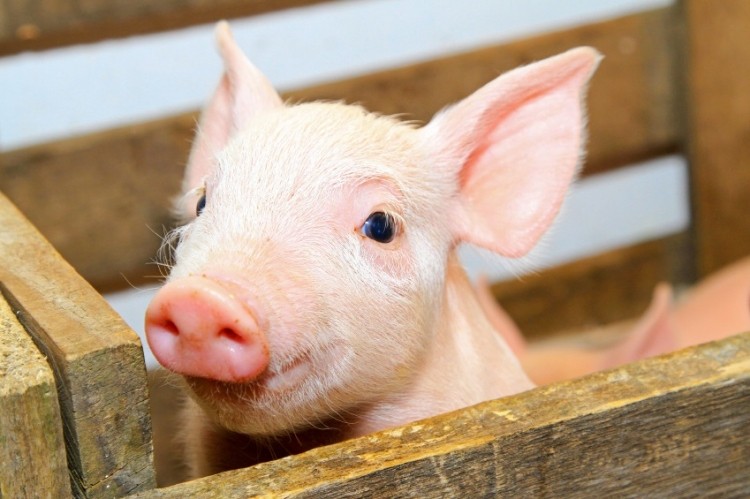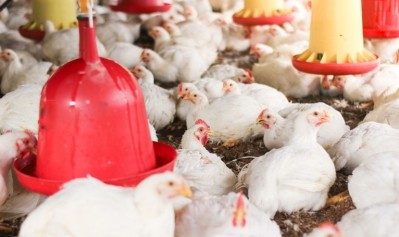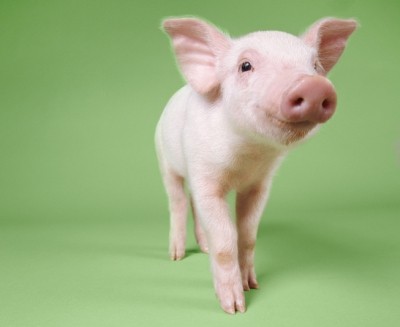Fermented wet feed could be game changer for piglet health

Indeed, the Danish Parliament has adopted the Veterinary Settlement III, regulation with a strong focus on reducing antibiotic consumption in Danish pig production.
Targeted research efforts have been initiated in collaboration between Aarhus University, University of Copenhagen and Statens Serum Institut (SSI) in order to procure knowledge and tools to reduce antibiotic consumption and find replacement strategies for zinc oxide, with due consideration to animal welfare and economic sustainability.
Aarhus University’s contribution takes place within the framework of the university’s agreement with the Ministry of Environment and Food of Denmark on the provision of research-based policy advice.
We spoke to Nuria Canibe, senior researcher, Department of Animal Science, Aarhus University, about the work she is doing to help producers to avoid the greater use of antibiotics as a result of the pending ban on zinc oxide. Essentially, she is looking at feeding strategies to improve intestinal health in piglets.
“This is something I am very excited about as I have worked for many years with fermented liquid feed. What is new [in terms of what we are doing] is to give fermented wet feed to piglets in the suckling period.”
Better feed intake, better health approach
Increased feed intake during the suckling period may entail increased feed intake after weaning. This is very important in order to maintain intestinal health and productivity, and it further helps reduce the risk of diarrhea, she said.
“One thing that we want to avoid is the pressure that happens around weaning in terms of feed intake and we will do this by already giving the fermented liquid feed to piglets from 14 days of age. They continue on this after weaning. We expect the piglets to like it more because it is liquid, thus more like milk.
“That is one thing, the feed intake, the other thing is want to do is to improve the health of the piglets, and by giving this acidified feed, you reduce the growth of pathogens.”
When fermenting wet feed, she said you achieve a very strong growth of lactic acid bacteria, a high concentration of lactic acid and a low pH value, which will kill pathogenic bacteria such as E. coli and salmonella in the feed as well as in the intestine.
“We are also trying to improve the digestibility of nutrients [in plant materials] by fermenting the feed.”
The team has been experimenting with fermenting both wheat and barley. “With barley, especially, as it is more resistant that wheat, we could see an improvement in its digestibility by fermenting it.”
The wet fermented feed at the suckling phase can act as a transition feed. The piglets would be used to digesting plant materials at that stage then, she said.
Probiotic supplementation
“We are also going to add a probiotic to the fermented cereals.”
The idea is to add the probiotic to the fermented liquid feed in a way that the dosage would go from the typical level 106 to the level of 109.
The industry recommended dosage level is 106 but the researchers believe, based on previous work, that level may be too low to get any real effect.
“We have been testing various commercial probiotics to see which ones grow in the fermented mixture. We have found one that does grow from 106 to 109 in about 24 hours.
"We had to test to see whether they grow or whether they were out-competed by the endogenous bacteria which are [generated] through the fermentation [process]. When you put this bacteria in the mixture, we see that you accelerate the fermentation [process] and the coliforms are killed much faster. So we add the probiotic to both improve the quality of the fermented product, and, we hope, to also have a probiotic effect in the animal because of the much higher level of the probiotic dosage.”
The one they have selected is known commercially as Bactocell, and which is produced by Lallemand. It is based on a live lactic acid bacteria (Pediococcus acidilactici MA 18/5M).
“That is the one that we saw gave the best results in terms of an organism that could proliferate in the feed and could improve the microbiological quality of the feed. But we don’t know anything about its probiotic effect.
“We will use that probiotic in our in vivo trial in April.”
In vivo trial
That trial will involve the feeding of diets to the progeny from 16 sows. The number of piglets will be standardized though.
The control diet will be one that involves the conventional approach, feeding piglets a dry feed, a creep feed from two weeks of age and the experimental approach will involve the feeding of the wet fermented feed to piglets at the same age.
“We will follow them until four weeks after weaning.”
The researchers will take fecal samples throughout. They will also carry out an E.coli challenge as part of this study, to see if the trial diet really does protect against diarrhea.
“We will slaughter the pigs and do various microbiological and immunological tests also; we will look at the health of the intestine, gut leakage and a range of other parameters.”
There should be no technology related limitations in terms of piglets eventually being given fermented liquid feed at the suckling stage as Danish farmers are already using milk replacer feeding systems for piglets, she added.















